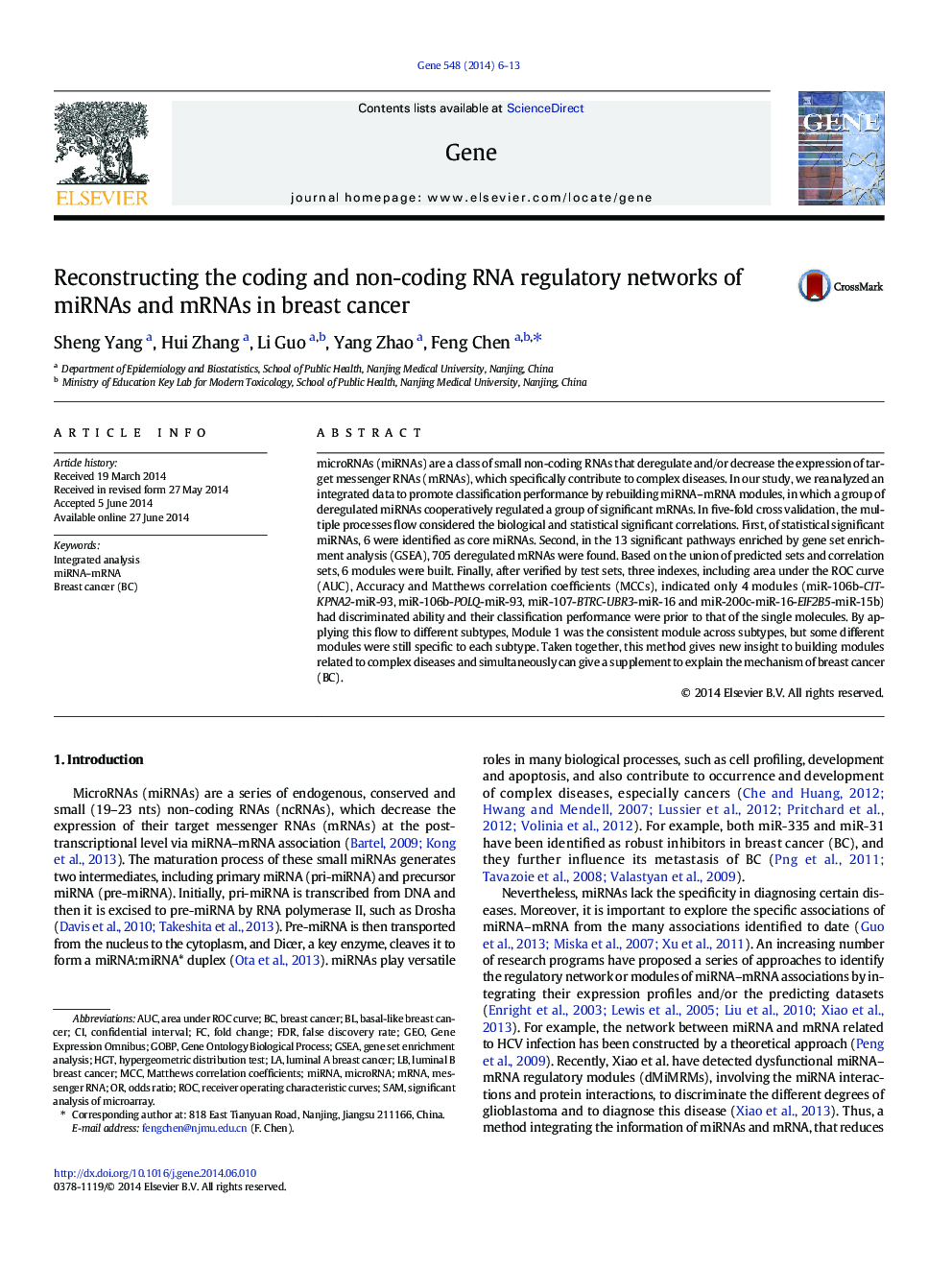| Article ID | Journal | Published Year | Pages | File Type |
|---|---|---|---|---|
| 5905636 | Gene | 2014 | 8 Pages |
Abstract
microRNAs (miRNAs) are a class of small non-coding RNAs that deregulate and/or decrease the expression of target messenger RNAs (mRNAs), which specifically contribute to complex diseases. In our study, we reanalyzed an integrated data to promote classification performance by rebuilding miRNA-mRNA modules, in which a group of deregulated miRNAs cooperatively regulated a group of significant mRNAs. In five-fold cross validation, the multiple processes flow considered the biological and statistical significant correlations. First, of statistical significant miRNAs, 6 were identified as core miRNAs. Second, in the 13 significant pathways enriched by gene set enrichment analysis (GSEA), 705 deregulated mRNAs were found. Based on the union of predicted sets and correlation sets, 6 modules were built. Finally, after verified by test sets, three indexes, including area under the ROC curve (AUC), Accuracy and Matthews correlation coefficients (MCCs), indicated only 4 modules (miR-106b-CIT-KPNA2-miR-93, miR-106b-POLQ-miR-93, miR-107-BTRC-UBR3-miR-16 and miR-200c-miR-16-EIF2B5-miR-15b) had discriminated ability and their classification performance were prior to that of the single molecules. By applying this flow to different subtypes, Module 1 was the consistent module across subtypes, but some different modules were still specific to each subtype. Taken together, this method gives new insight to building modules related to complex diseases and simultaneously can give a supplement to explain the mechanism of breast cancer (BC).
Keywords
GOBPBreast cancer (BC)MCCmRNAHGTFDRROCGSEAGEOSAMAUCmessenger RNAGene Set Enrichment AnalysisIntegrated analysisfold changebasal-like breast cancerBreast cancerconfidential intervalarea under roc curvefalse discovery rateMicroRNAMiRNAodds ratioGene Expression Omnibusreceiver operating characteristic curves
Related Topics
Life Sciences
Biochemistry, Genetics and Molecular Biology
Genetics
Authors
Sheng Yang, Hui Zhang, Li Guo, Yang Zhao, Feng Chen,
